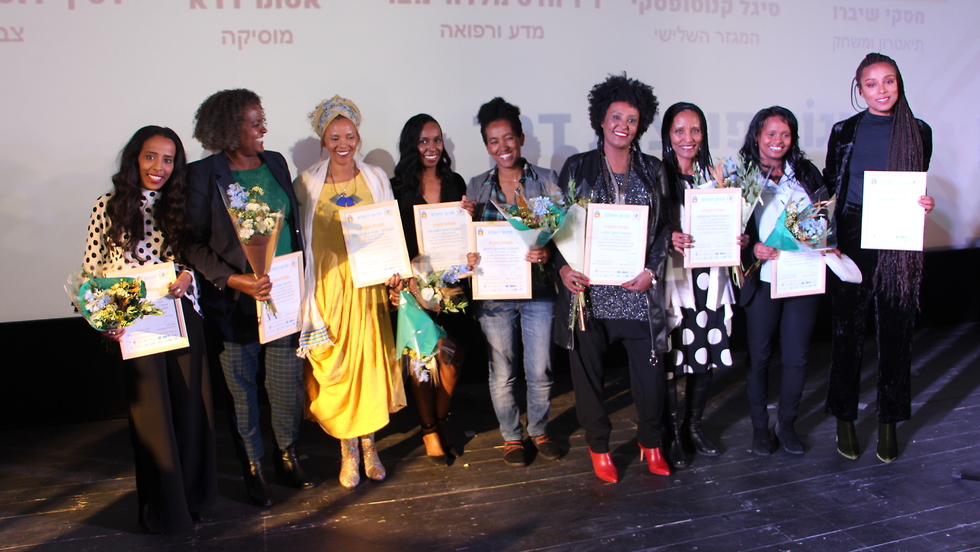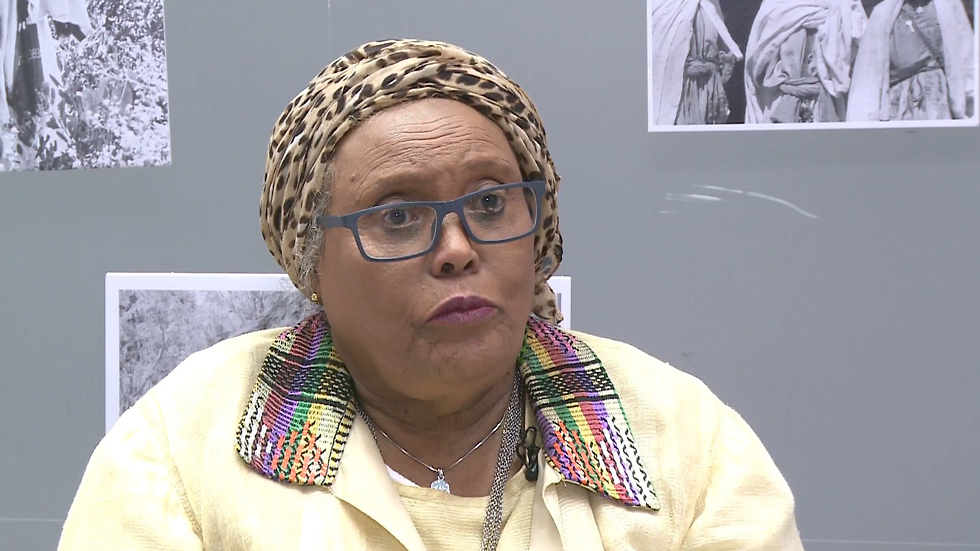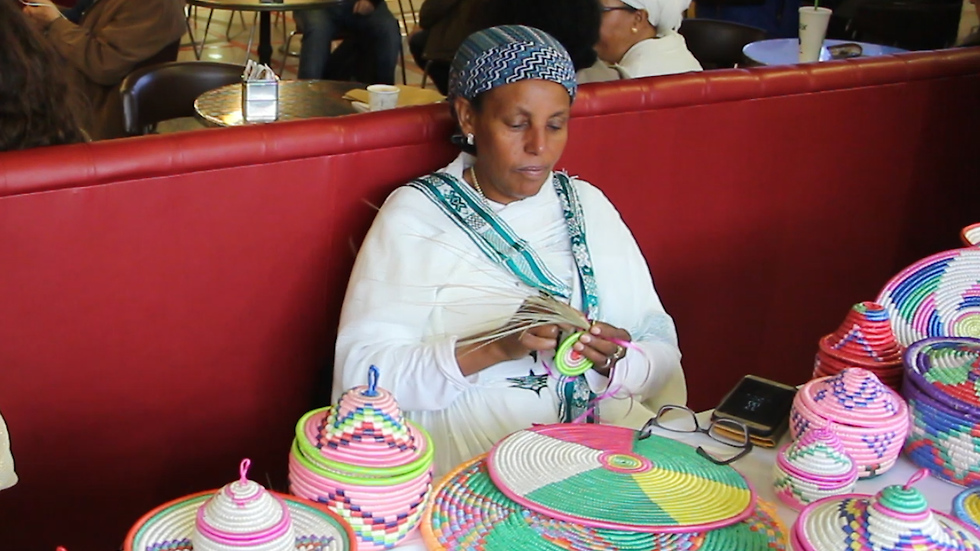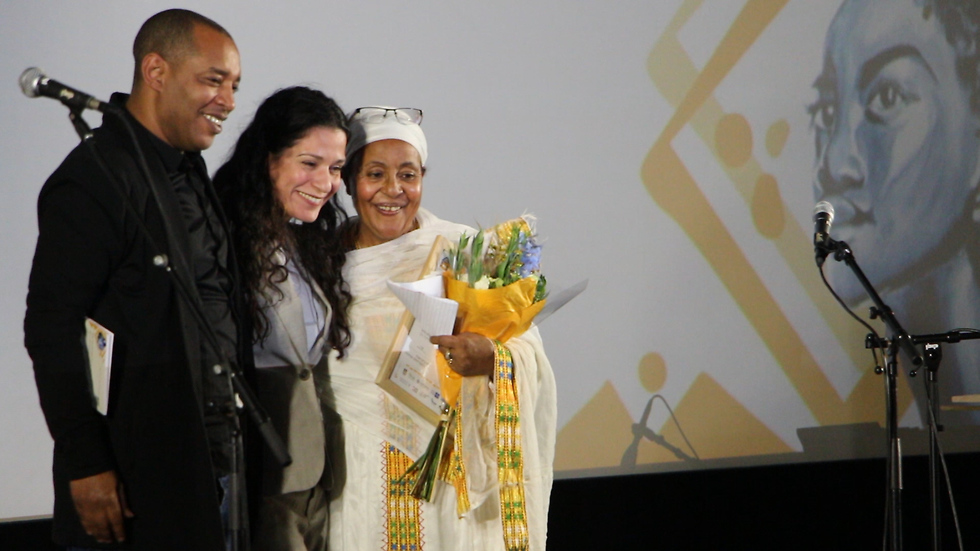Mother, tell me again
How I got here (to Israel)
About the desert journey
How we left at night and left everything behind
This verse, from the famous song “Mother, tell me,” about the tumultuous journey from Ethiopia that Jews had to go through on their way to Israel, opened the third Yerusalem Forum convention — a yearly meeting devoted to the Ethiopian Women Trailblazers Forum, celebrating women who make important contributions to Israeli society.
This year’s convention was dedicated to 11 inspiring women; young women, academics, mothers and artists, who all make a positive impact on society in their unique way. The stories of two of these women, who made the journey to Zion, risked their lives to help other Jews and suffered difficult circumstances, were the evening’s center piece.
Herut Takala Legese, 71, was born in 1948 in Kwara, Ethiopia. At the age of 16 she moved to Gondar, a city in the country’s north, to get a higher education, and became a nurse. She was then sent to work in the capital Addis Ababa in a children’s hospital ward, got married and gave birth to eight children.
In 1977, Takala lost her husband in a car crash, and remained the sole caretaker of her big family. Despite the traditional attitudes to women, Takala pushed forward, using her personal and determination to become the chief midwife, family planning advisor and head of the newborn clinic in an American hospital in Addis Ababa. She also quickly became the chairperson of the local women’s organization.
“I helped my people,” said Takala, meaning the Jews who were her neighbors. “I let them sleep in my house; I took care of them and brought them food. I was the only one who spoke English, so I became the leader in our efforts (to get to Israel). It was very hard to travel to Israel back then.”
In 1986, a group of Ethiopian Jews making their way to Israel was captured by authorities. After they endured harsh torture, they gave up Takala’s name as the person who helped them on their journey. She was arrested and imprisoned in the Addis Ababa central prison.
“I was put in a dark room. Five or six soldiers started beating me up and asking questions. They hit my arms, my legs, my head. I was injured and taken to the clinic, then my leg was patched up and they continued beating me in other places. I was in prison for two years,” she said. “I didn’t see my children for two years.”
During the entire time of her imprisonment, Takala was questioned, beat up, starved and tortured — but she never gave up her accomplices. After two years she was released and reunited with her children — and together the family made its way to Israel in 1990.
Takala was acknowledged as a Prisoner of Zion — a Jew imprisoned due to Zionist activity — upon her arrival in Israel. She lived in Holon, near Tel Aviv, and worked at a women’s maternity facility in Tel Aviv. She then moved to the city of Hadera, where she was a teacher for new immigrants, and worked at a facility for the elderly.
Asked how she felt when she arrived in Israel, Takala says with a smile: “that’s what I always wanted.”
Another unknown hero is Asrese Getu Sahalo Girmay, who was born in Gondar, Ethiopia in 1958, the youngest of 10 children.
Unlike other families and against local customs, Asrese’s father decided to send both his sons and daughters to school — and after four years of studying in her village, she convinced her parents to let her continue her studies instead of marrying. She finished 12 years of school and became a nurse.
In the early 80s, Ethiopian authorities decided to send Asrese to work as a nurse at the front line near Asmara, where deadly battles were taking place between Eritrean separatists and the Ethiopian army as part of the Ethiopian Civil War. Her family then advised her to journey to Israel with a group that was going to travel via Sudan — and all the way into Zion — on foot.
“We made it to Sudan safely, but a month later I got sick,” Aserese says. “I got to a Red Cross clinic to receive treatment, and was told that I didn’t deserve to be treated, since I made the journey on foot. I looked around and saw all these Ethiopian Jews who weren’t getting treatment and were being pushed aside. I thought to myself — I’m going to volunteer.”
After Aserese proved herself as a volunteer, the Red Cross hired her as a nurse. She took care of many refugees of all religions during her work there, but most of all, she took care of Jewish refugees who were rejected by the others because of their religion.
“If the Red Cross people were not there, I would sneak into the pharmacy and take medicine for free,” she says. “If they were there and looking, I paid with my own money. I helped everybody, anyone who came by. Sometimes the Jews asked me why I help Eritreans, and I told them that it’s my duty.”
Asrese was risking her life doing the work she did, but continued fearlessly and even started volunteering in distributing aid money to Jewish families in the camp. She had to stop when she started getting threats from refugees who weren’t eligible for aid, and was told she’d be reported to the Sudanese authorities.
In 1985, after all other Jews at the camp left for Israel as part of Operation Moses, Asrese decided she would also leave Sudan. But someone told the local government that Jews were heading to Israel, and the roads were blocked. With the help of Ethiopian Jews who worked for Israel’s Mossad spy agency, the camp dwellers contacted the Canadian Embassy in Sudan, and shortly after Asrese found herself in Winnipeg, Canada, holding a month-old baby in her arms.
She started working night shifts as a nurse in a local hospital, and in her free time volunteered to raise donations for the Ethiopian Jewish community. Asrese raised her daughter by herself, and after a five-year ordeal, was finally able to get her mother to leave Ethiopia and enter Canada. Her mother then moved to Israel, where she united with two of Asrese’s brothers, who had been released from Ethiopian prison with the help of the Mossad, and were also acknowledged as Prisoners of Zion upon their arrival in Israel.
One year later, Asrese also moved to Israel with her daughter, and continued working as a nurse — a vocation she continues to pursue to this day.
“I had more than 100 little children, I saved many children,” she says, and adds that she thinks she “did nothing special” and that she “did what she had to do.”
One of the children she had saved was there, at the convention. He had looked for her ever since he heard she made it to Israel, and at the convention presented her with a reward for all the work she had done for Ethiopian Jews.
“Ethiopian Jewry is beautiful has a beautiful history of over 2,500 years. There are so many inspiring heroic stories that need to be told,” said Shmuel Yalma, founder and manager of the Yerusalem Forum.
“Israeli society doesn’t know these stories, especially the heroic stories of women, and that’s why the Yerusalem Forum works to commemorate these stories and make them a part of the Israeli tale.”
Site developed by  Copyright © Yedioth Internet. All rights reserved.
Copyright © Yedioth Internet. All rights reserved.



